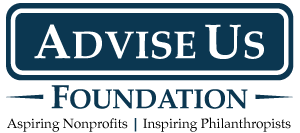
by Andrew Hibel | Apr 14, 2015 | Donor-Advised Funds, Featured |
Are you ready for a great opening day? Opening a donor-advised fund is easy, but covering the four bases below means you’ll get the most out of your fund starting from day one. Maximize Contribution Benefits with Your Donor-Advised Fund. Consider giving long-term (held over a year) appreciated securities to your donor-advised fund. This can avoid capital gains tax and maximize your charitable tax deduction. Keep the Right Tax Records – It’s Easy. Gifts to your donor-advised fund may be tax deductible. Those are the records to keep for your taxes. You do not need to keep tax records for grants you advise from your donor-advised funds to charities. You cannot claim donor-advised fund grants on your taxes. Schedule Grant Advisements – It’s Easy. Consider scheduling regular or future one-time charitable gifts. The grant advisement process is easy. You don’t have to remember and take the time to make a gift when you’re busy, like during the holiday season. Your Donor-Advised Fund Can Contribute to Estate Plans. Donor-advised funds offer flexible options for estate planning. Consider advising a grant from your fund to one or more charities that you care most about. Consider leaving the right to make grant advisements from the fund to your heir(s). Consider funding a donor-advised fund for your heir(s) from your estate to leave a legacy of charitable giving. Donor-advised funds make it easy to field a winning team with flexible and tax-efficient charitable giving. Covering the four bases above can make your donor-advised fund experience easier and more fulfilling starting opening day. ____________ Andrew Hibel serves as President and is the Founder of...

by Andrew Hibel | Mar 18, 2015 | Donor-Advised Funds, Featured |
Donor-advised funds offer easy and flexible charitable giving with great tax planning benefits. Here are five ways to benefit from donor-advised funds during tax season. Centralize Giving and Records. Stop searching for donation receipts. Donor-advised funds let you focus on one charity for tax purposes. All your donation records come from your fund. You can plan the amount you want to give easier, advise grants to the numerous charities you care most about, and you don’t need to worry about writing and mailing numerous checks (donor-advised fund administrators distribute your donations too). Harvest Gains and Rebalance Your Portfolio. Contributing appreciated assets to charity can offer greater tax-savings than donating cash. Donating appreciated securities, at fair market value if held more than a year, to your donor-advised fund can provide a charitable deduction that helps off-set capital gains taxes. You can also strategically rebalance your portfolio. Donating low basis appreciated securities can increase your portfolio’s overall cost basis. Budget and Schedule Your Giving. How much do you want to give this year? Next year? Donor-advised funds make it easy to see how much you’re giving and to whom because the information is all in one place. Do you give regularly to one or more charities during the busy holidays – or some other time that isn’t convenient to remember and take the time to do it? Schedule your grant advisements in advance, when it’s convenient for you, for the time(s) you want to gift to charity. Your donor-advised fund will take care of it. Separate Donating from Gift Giving. You should donate at the optimal time for you tax-wise and...

by Hiram Wurf | Mar 17, 2015 | Donor Intent, Donor-Advised Funds, Featured |
Nonprofit general operating support gives mission-critical funding. While nonprofits often welcome program-specific support, program funding often drains other resources. Without enough unrestricted support nonprofit operations are less effective and successful. Increasingly charity associations, funders, and media advocates believe nonprofits need more general operating funds than they receive to achieve their mission. Seven Reasons Nonprofits Need General Operating Support Why do charities need unrestricted support? In many cases general operating funds not only keep the lights on – they also contribute to the effectiveness of charity program development and implementation. Here are seven reasons why nonprofits need unrestricted support. Fostering financial sustainability and capacity building; Strengthening donor and charity relationships and trust; Providing flexibility to efficiently and effectively meet charitable missions; Promoting mission-focused work using core capabilities and strengths; Permitting better long-term planning; Easing administrative burdens for charities and in some cases donors; and Establishing broad, mission-based outcome accountability. Just like other organizations, nonprofits need funding responsive to their unique needs. Donors Contributing to General Operating Support Perhaps aware of these concerns, in recent years some donors have increased their gifts for unrestricted support. One study of foundations found that from 2008 to 2014 the percentage of grant dollars going to general operating costs grew from 20% to 25%. Donor-advised fund donors often provide more unrestricted support than foundations. This may reflect a difference in giving culture. While some donor-advised funds solicit grants and have staff with program expertise focused on grants, most do not. Donor-advised fund donors tend to base grant advisement decisions on personal charitable experiences. These donors often volunteer individually or as a family at charities they...

by Andrew Hibel | Feb 25, 2015 | Donor Intent, Donor-Advised Funds, Featured |
Recently, the Chronicle of Philanthropy released their Philanthropy 400 that included a number of high ranking donor-advised funds. This led to positive and negative reviews of the growth and place of donor advised funds in charitable giving. It’s a great time to take up this discussion because donor-advised funds have reached a crossroads in the charitable community – and we must choose their future path. At its essence a donor-advised fund is uniquely able to separate the tax efficient portion of charitable giving from the granting portion of the gift. Often marketers of donor advised funds – coming from professional investment backgrounds – like to sandwich these two features around what happens between them (i.e. investing the funds that have already been contributed to charity) to create what I call the “features sandwich” of donor advised funds – Give. Grow. Grant. The discussion of donor advised funds today has too much energy placed on the features of investment and tax deduction. While investment and tax deduction features are essential to planning the gift, they are not the benefits donors receive from a fund. Changing the “grow” of the features sandwich to “guide”, and moving the discussion from investments to stewardship, sets us on the path of reclaiming the donor-advised fund as a leading gift planning vehicle focused on charitable intent. Give. Guide. Grant. This “benefits sandwich” focuses charities (which all donor-advised fund purveyors are legally required to be) on providing unique benefits as stewards and grant makers. It offers us a chance to discuss the following incredible gift planning benefits that donor advised funds can offer donors: Timing –...

by Andrew Hibel | Feb 17, 2015 | Charitable Alt-IRA, Donor-Advised Funds, Featured |
The Charitable IRA Rollover, also known as a qualified charitable donation or distribution, offers a tax advantaged way to donate to charity. It permits donors to gift up to $100,000 from their IRA to a public charity. But while popular, the Charitable IRA Rollover suffers from legislative and qualification limitations. Charitable IRA Rollover – Limited by Legislative Limbo Every one or two years since 2006 Congress has renewed the Charitable IRA Rollover, but donors and their financial advisors are never sure if it will happen. In 2014 it passed with two weeks left in the year – and only for tax year 2014. Proposed legislation in the House of Representatives would make the Charitable IRA Rollover provision permanent, but the Obama Administration has rejected similar bills in the past. Its legislative fate is uncertain. But even if the Charitable IRA Rollover becomes permanent, it still has limits the legislation does not propose to change. Charitable IRA Rollover Limits While popular, the Charitable IRA Rollover provision has restrictions limiting its appeal. Donors qualify for a Charitable IRA Rollover at age 70-1/2 or older. The provision limits contributions to $100,000 annually per person. Donors may not contribute to a donor-advised fund, supporting organization or private foundation (with the exception of a private non-operating foundation meeting conduit rules). Charitable Alt-IRA – a Better Alternative No matter what happens in Washington, the Charitable Alt-IRA technique offers many and perhaps most donors a better alternative than the Charitable IRA Rollover. More donors qualify for the Charitable Alt-IRA, with fewer downsides and more advantages. The technique involves contributing long-term appreciated securities to a donor-advised fund,...






